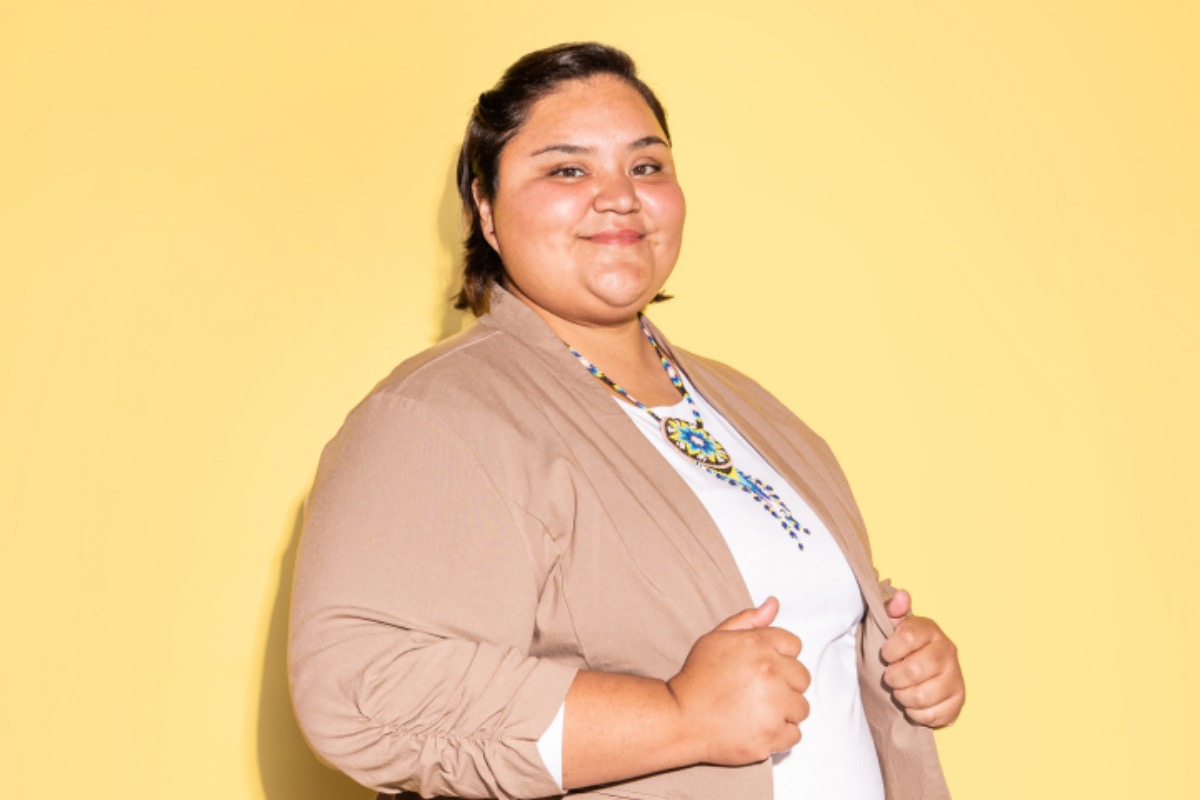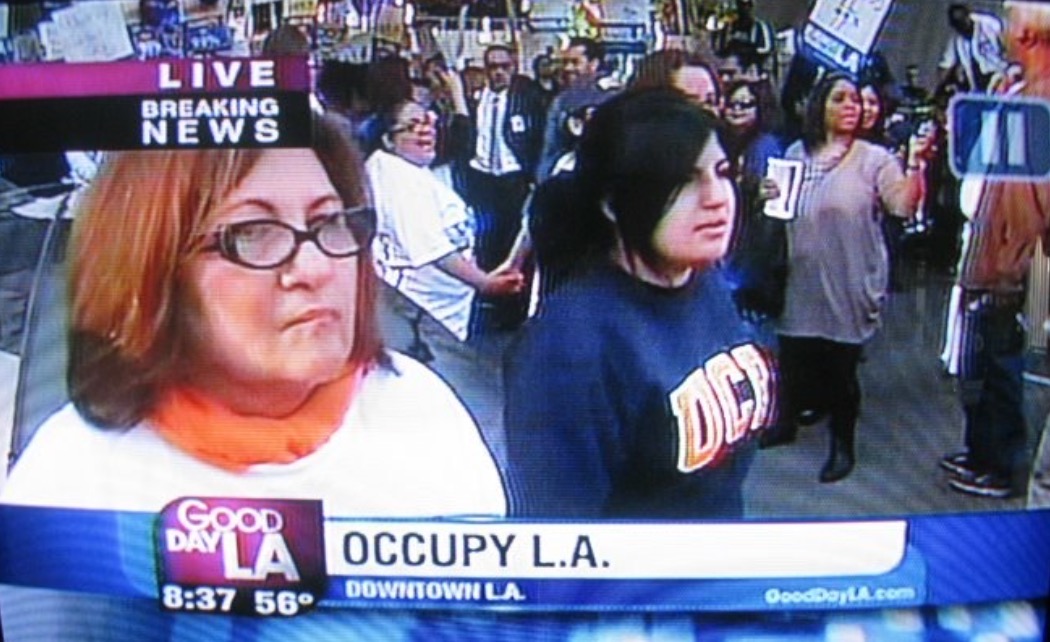

Eunisses Hernandez, who was elected to the Los Angeles City Council in 2022 (Eunisses Hernandez for City Council)
LOS ANGELES — Over the last 20 years, Los Angeles has elected its first Latino mayor and has three L.A. County sheriffs of Latino descent, including current Sheriff Robert Luna, born to a father who emigrated from Sinaloa and a U.S.-born mother with roots in Michoacán. Still, the community lost a Latina councilwoman to racist remarks, and now various Latino councilmen across the county have been found guilty of racketeering.
Many argue that this is a result of the way in which institutionalized racism in the United States pervades even communities of color, while others say that these people, despite their flaws, have at least paved the way for future generations of Latino lawmakers.
In the second half of 2022, L.A. City Council President Nury Martínez resigned from her seat, Councilmen Gil Cedillo was defeated in a historic primary, and Councilmen Kevin de León’s entire legacy was put into question after leaked audio revealed a conversation between the three council members in which they disparaged Latino immigrants from Indigenous communities and the Black child of a fellow council member, while discussing ways in which they could redraw district maps to increase Latino political party at the expense of Black political power.
Some point to the triumphant wins by Eunisses Hernandez and Hugo Soto-Martinez in the L.A. elections in June, and Robert Luna’s in the L.A. County elections in November, as unique litmus tests of where Latino voters now stand. At this time, then, it is important that we differentiate between Latinx representation and Latinx political power and define what each means given the persistent issues facing the city and county.
In December, L.A. Times reporter Brittny Mejia wrote about the low voter turnout among Latinos in Los Angeles, pointing to a lack of candidates that might energize people but also further complicating the myth that Latinos only vote in specific ways related to immigration. We’ve finally reached a better understanding that the Latino vote is not a uniform bloc, and reporting like this gets us closer.
Nationally, misconceptions about Latino voter participation continue. As Kelli Maria Korducki has pointed out in The Atlantic, Latino voters are already the second strongest group of voters and have been developing a strong character electorally. In 2020, Latino voters nationwide gave more votes to Democratic candidates than to candidate Joe Biden, showing that they are energized to get to the polls for local candidates and issues. For this reason, Bill Gallegos in The Nation called out the Democratic Party for not giving sufficient priority to Latino issues and investing in electoral power overall.
While voting participation comes in waves, some advocates and scholars point to the institutions alone. Dr. Celia Lacayo, professor of Chicano/a and African American studies at UCLA, where she is also the associate director of community engagement, told me to look at all the various institutions that one must maneuver to even pursue elected office.
Running for elected office requires candidates to meet with donors and knock on doors around the clock. Once elected, this fundraising becomes more than a full-time job. Those from the lower classes must have extra time outside of their work to merely secure the money to run for office. Meetings that run late into the night way even more heavily on mothers too, for example.
“When women come into power, it benefits most,” she said as she reflected on the potential legacy of Karen Bass, now the first woman and only the second Black person to be elected mayor of Los Angeles. Women, she says, look at everything that encompasses life in ways that men or people with blind spots don’t.
For Gabriela Vázquez, deputy director of the community-based advocacy group La Defensa, femmes, not just women alone, see the invisible labor involved with such work. “People like Eunisses make sure all the labor is seen as important,” she said, adding that she had met the now-councilwoman during an interview for a position at La Defensa.


Gabriela Vázquez and her mother at a demonstration in 2011 (Courtesy of Gabriela Vázquez)
Running for office was not something that brought Gabriela to the work she does, it has always been about the issues impacting her larger community of Highland Park, a neighborhood that has been experiencing rapid gentrification.
The daughter of a labor organizer, Vázquez began attending picket lines and organizing meetings in elementary school, learning how to question institutions of power and studying liberation theology and theory in both English and Spanish. Heading to the University of California, Riverside to learn from the late writer, activist and urban theorist Mike Davis, working at labor unions, and now directing campaigns at La Defensa are things Vázquez says make her mother proud.
Having grown up in the labor movement and worked across various campaigns, Vázquez also got to witness the stark differences in leadership and how important it is for continued capacity. For her, the ongoing issues of representation in the Boyle Heights and Highland Park areas, represented by de León and former Councilmen Cedillo, aren’t simply about needing another Latinx person to represent them.
“I don’t care if it’s a completely different person representing that district, it just matters that they care,” she explained, referring to de León, whom the latest polls show community members are open and eager to replace.
Election results and polls are traditionally the ways in which we measure a successful campaign or candidate. The reality of representation in Los Angeles has shown that it is not enough to only measure the success of representation but to also measure the power of such representation. After Latinos are elected, most problems remain the same, causing many to lose hope in the system.
The invested resources of the L.A. area like Hollywood, tourism, and hospitality have reigned in political power and influence for generations. Cases like that of Jose Huizar —the former chair of the city council’s land-use committee who pleaded guilty to racketeering and tax evasion in late January after it was revealed that he had solicited bribes from developers to the tune $1.5 million— stand out because they are the perfect examples of fallen heroes and ready disclaimers for the flaws in Democratic representation. (Huizar was replaced by de León in a special election in 2020.)
On the other hand, Eunisses Hernandez recognizes the work it took for her to be elected into office and points to history as a tool for understanding the concessions and steps forward that Latino candidates have taken over the generations. Her leadership, she knows, is different because it represents a movement and community that has long been undermined.
“I come to this work through the lens of being a survivor of sexual assault,” she told me. “I come to this work in that many of my loved ones who, instead of getting met with care and support, they were met with criminalization and/or jail.”
Her approach was and has always been issue-driven, yet fueled and influenced by both experience and research.
At the time of our first interview in 2019, Hernandez was organizing an event for incarcerated mothers where she and the coalition she was with were offering services to the women and talking to them directly about how the county was funding incarceration more than they were funding mental health care. She later co-chaired the Measure J initiative, whose purpose is to allocate no less than 10 percent of county funds to address the disproportionate impact of racial injustice.
Her work, from before and after her campaign, has been in coalition with Black, Brown, Asian, and white allies. It was this kind of solidarity and cross-community collaboration that propelled then-Councilmen Antonio Villaraigosa to the mayor’s office in 2005.
“That coalition mindset is the mindset I have had my entire life and it is that same mindset that Karen Bass has had her entire life,” Villaraigosa said in a 2022 interview. ”She is a coalition builder and understands for the city to progress it can only progress through positive coalitions working together.”
Edward Roybal, California’s first Latino member of Congress since 1883, was a leader who led in intersectional ways before the term was even coined. As Victoria Bernal recently reported for KCET, Roybal’s second campaign for city council in 1949 focused on issues like civil rights instead of banking on his Latino identity alone. His campaign was staffed by volunteers of various ethnicity and walks of life. With public health as one of his primary concerns, he also developed some of the first national legislation to look at the impact of the AIDs epidemic.
Councilwoman Hernandez points to her community around her as her strength, and those like Gabi who have worked directly with her tell me that her leadership is just different.
The history of Latino politics might suggest that Latino voters only respond after threats like Prop 187 and the Trump presidency, and immigration concerns in general, but the careers of Roybal, Hernandez, and Vázquez point to a different legacy—one that says that the question of Latino representation and power hinges on what we measure and the issues we focus on.
***
Francisco Aviles Pino is a Mexican writer and creative producer born in Acapulco and based in Los Angeles. Twitter: @francisco_apino



[…] Source […]
[…] we measure impactful leadership matters. Earlier this year, I wrote about the need to look at the long history of leaders and also measure Latino leadership outside electability and […]